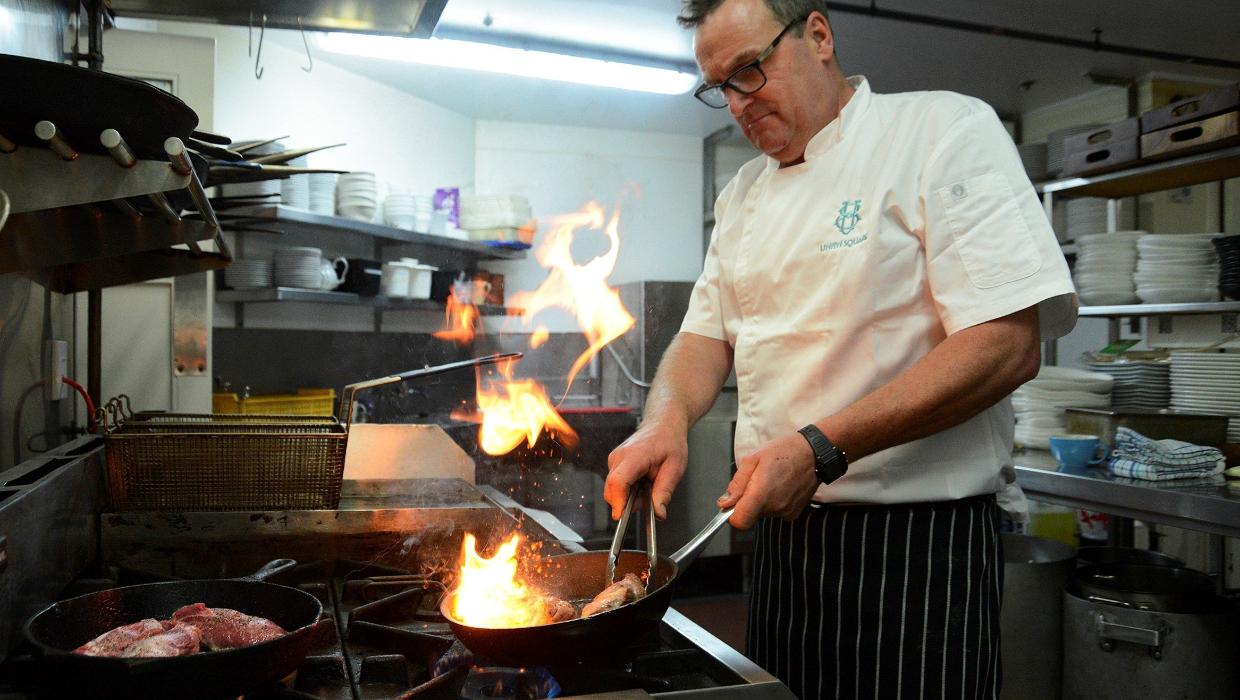Lifestyle
New Zealand Secures Michelin Guide to Revitalize Hospitality Sector

New Zealand’s hospitality sector has welcomed the announcement of a forthcoming Michelin dining guide, a move seen as pivotal for revitalizing the industry following the impacts of the COVID-19 pandemic. On March 15, 2023, Tourism Minister Louise Upston and Prime Minister Christopher Luxon revealed that the government has secured a three-year agreement worth $6.3 million with Michelin. This funding will be sourced from Tourism New Zealand and the international visitor levy, allowing Michelin inspectors to evaluate restaurants across the country.
The initiative aims to boost tourism numbers that have yet to return to pre-pandemic levels. Marisa Bidois, chief executive of the Restaurant Association, expressed that the agreement is a result of persistent industry advocacy. “It’s been a long time coming,” she stated, noting that discussions about a Michelin guide began nearly a decade ago.
As the pandemic devastated visitor numbers, the idea of hosting Michelin inspectors gained traction. Upston was briefed about the proposal early in her role as Minister of Tourism. While the initial rollout of the guide will focus on major cities like Auckland, Wellington, Christchurch, and Queenstown, Bidois emphasized the need for broader outreach in the future. “In an ideal world, it would not just be those four areas, but it’s a good start,” she said, highlighting the potential for regional tourism growth.
Impact on Workforce and Industry Standards
The Michelin Guide could also play a crucial role in retaining skilled hospitality staff within New Zealand. Bidois remarked that many chefs aspire to gain experience in Michelin-starred establishments abroad. “Hopefully this will help retain some of that workforce,” she stated. While the industry has experienced slight improvements in workforce shortages, the introduction of the guide is expected to attract new talent and elevate professional standards.
The announcement took place at the Auckland University of Technology (AUT), where Vice Chancellor Damon Salesa noted its significance for both students and employers in the hospitality field. He explained that the guide would provide a benchmark for aspiring chefs, allowing them to build their careers locally rather than seeking prestige overseas.
AUT has established itself as a leading institution for hospitality and tourism, consistently ranking in the top 40 globally for culinary arts. Salesa pointed to successful graduates such as Michael Meredith and Simon Gault as examples of the high caliber of talent emerging from New Zealand’s culinary scene.
Boosting Tourism and Economic Recovery
The decision to engage Michelin has been positioned as a strategic move to enhance the hospitality sector, despite concerns about its viability. Upston dismissed claims of a declining industry, stating that there have actually been more restaurant openings than closures this year. Recent data from Centrix indicated that hospitality ranked second in business closures, with 303 establishments shutting down in the past year. Nevertheless, Upston highlighted positive employment trends, as hospitality has remained a significant employer.
The government’s goal is to restore tourism to levels seen before 2019. Currently, 80% of the international visitor levy funds are allocated toward demand generation, with the remainder supporting supply. Upston noted that as visitor numbers improve, this ratio will shift to 60:40. She emphasized the importance of stimulating demand, stating, “Michelin’s global brand and audience reach make it a powerful conversion tool for travelers considering New Zealand, particularly those motivated by food.”
Prime Minister Luxon indicated that New Zealand did not consult with Australia prior to inviting Michelin, asserting that this decision positions New Zealand as the first country in Oceania to feature a Michelin guide. “Let’s be clear, we like betting Australians on anything… I think per capita we’ve certainly got the better hospitality sector for sure,” he stated.
According to research conducted by Tourism New Zealand, the introduction of the Michelin Guide could potentially attract an additional 35,000 visitors annually. Furthermore, 68% of diners surveyed in China indicated that the presence of the guide would influence their booking decisions.
As New Zealand embarks on this culinary journey, the Michelin Guide is expected to serve not only as a hallmark of excellence but also as a catalyst for economic recovery and a renewed sense of pride in the nation’s vibrant hospitality sector.
-

 World3 months ago
World3 months agoTest Your Knowledge: Take the Herald’s Afternoon Quiz Today
-

 Sports3 months ago
Sports3 months agoPM Faces Backlash from Fans During Netball Trophy Ceremony
-

 Lifestyle3 months ago
Lifestyle3 months agoDunedin Designers Win Top Award at Hokonui Fashion Event
-

 Sports3 months ago
Sports3 months agoLiam Lawson Launches New Era for Racing Bulls with Strong Start
-

 Lifestyle3 months ago
Lifestyle3 months agoDisney Fan Reveals Dress Code Tips for Park Visitors
-

 World3 months ago
World3 months agoCoalition Forms to Preserve Māori Wards in Hawke’s Bay
-

 Health3 months ago
Health3 months agoWalking Faster Offers Major Health Benefits for Older Adults
-

 Politics3 months ago
Politics3 months agoScots Rally with Humor and Music to Protest Trump’s Visit
-

 Top Stories3 months ago
Top Stories3 months agoUK and India Finalize Trade Deal to Boost Economic Ties
-

 Entertainment3 months ago
Entertainment3 months agoExperience the Excitement of ‘Chief of War’ in Oʻahu
-

 World3 months ago
World3 months agoHuntly Begins Water Pipe Flushing to Resolve Brown Water Issue
-

 Science3 months ago
Science3 months agoNew Interactive Map Reveals Wairarapa Valley’s Geological Secrets









